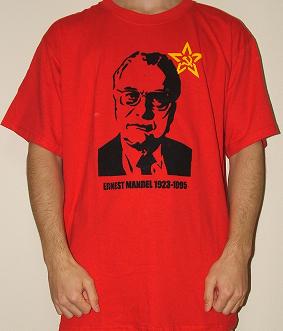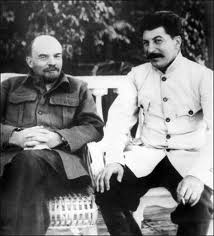This is part of an ongoing discussion among Workers Party comrades and doesn’t necessarily reflect an agreed position.
“Of course, even among the workers who had at one time risen to the first ranks, there are not a few tired and disillusioned ones. They will remain, at least for the next period as bystanders. When a program or an organisation wears out, the generation which carried it on its shoulders wears out with it. The movement is revitalised by the youth who are free of responsibility for the past.”
-Trotsky, The Transitional Program
The resignation of four senior WP comrades on the eve of our January 2011 Retreat probably came as a shock to most of the Party. Those comrades announced that they would abandon any claim to the Party in favour of setting up a theoretical and international solidarity focused blog. Ian Anderson’s discussion bulletin “On the Party Question” did a good job of analysing their collective statement of resignation. In this bulletin, I intend to further probe the reasons behind the split.
Jared Phillips’ initial take on the split was that the senior comrades’ stated reason for leaving the WP – the objective conditions – was an excuse, and in reality they were just demoralised. Maybe so, but this still does not get us to the root of the problem. Everyone gets demoralised from time to time, especially when the struggle is at a such a low ebb. The point of having an organisation with a programme is that such a collective can sustain us through the Dog Days. It must in the end come down to a political deficiency.
 Recently I asked a British comrade if there was any precedent for this event, since every split that I was aware of involved factions fiercely vying for the membership, tradition and apparatus of the party. My comrade suggested the United Socialist Party (VSP) formed in West Germany in 1986 as a historical parallel. The group was the product of a merger of two groups: the Mandelite International Marxist Group, and the Communist Party of Germany/Marxist-Leninist, an originally pro-Mao party that was later supportive of the Albanian leader Enver Hoxha. The VSP fielded a slate of candidates for the 1987 federal elections, but the party failed to win any seats in the Bundestag and consequently lost its electoral recognition. Eventually, the Mandelite leadership gave up and walked away from the party. The unwillingness to confront the question of Stalinism ultimately led to the dissolution of the VSP.
Recently I asked a British comrade if there was any precedent for this event, since every split that I was aware of involved factions fiercely vying for the membership, tradition and apparatus of the party. My comrade suggested the United Socialist Party (VSP) formed in West Germany in 1986 as a historical parallel. The group was the product of a merger of two groups: the Mandelite International Marxist Group, and the Communist Party of Germany/Marxist-Leninist, an originally pro-Mao party that was later supportive of the Albanian leader Enver Hoxha. The VSP fielded a slate of candidates for the 1987 federal elections, but the party failed to win any seats in the Bundestag and consequently lost its electoral recognition. Eventually, the Mandelite leadership gave up and walked away from the party. The unwillingness to confront the question of Stalinism ultimately led to the dissolution of the VSP.
Could a similar dynamic have driven the split in the WP? Of the four comrades who left, only Don could have ever been described as a “hardcore” Stalinist – and that would only have been accurate more than 20 years ago, since when he has done a great deal of reassessment. Daphna and Mark came out of the original Workers Party, which – while it maintained a critical distance – if you read Ray Nunes’ writing, remained very much in the tradition of Stalinism (and its Chinese variant, Maoism.) Phil was an activist with Sinn Fein, which had a long association with Stalinism; e.g. in the 1960s, the Stalinists took over the leadership of the IRA.
None of which should be read as characterising these comrades as crude Stalinists. They are all thinking, non-dogmatic, humane people. However, the politics that one picks up in one’s youth has a profound effect on one’s long-term outlook. If the Stalinist regimes are seen as “post capitalist” in some way or other, then the collapse of the Eastern Block in 1989-91 will end up seeming like a historical defeat. The hardcore Stalinists very quickly “biodegraded” into Social Democracy or passivity. The more critical and nuanced people survived as activists for longer – in these comrades’ case, 20 years.
The way in which Stalinism distorted the outlook of socialists was profoundly disorientating. Or, as a wise old Sri Lankan ex-Stalinist once put it to me: “We used to think that our lodestar was the morning star; when, in fact, it was the evening star.”
The founding statement of the Revolutionary Workers League (which became the core of the present Workers Party) stated:
Differences continue to exist over historical questions such as the degeneration of the Soviet Union and the Stalin/Trotsky debate and some aspects of the Chinese revolution. It was agreed that these are not sufficient to prevent principled revolutionary unity and can be discussed at leisure in the future by members of the RWL, including publicly in the organisations press.
[June 2004]
 As it turned out, those debates were endlessly deferred as “historical questions.” But some baggage cannot simply be jettisoned. The collapse of the Eastern Bloc and the neo-liberalisation of China had allowed for a convergence of outlooks between “pro-Trotsky” and “pro-Mao” groups, which resulted in the WP. Stalinism was treated as a “black box”, whose input was the healthy, democratic Bolshevik revolution, but whose final output were sclerotic, bureaucratic police states. Such an approach to the history of our movement has proven to be inadequate. We need to settle accounts with the twentieth century before we can move ahead. We need to open up the black box of Stalinism.
As it turned out, those debates were endlessly deferred as “historical questions.” But some baggage cannot simply be jettisoned. The collapse of the Eastern Bloc and the neo-liberalisation of China had allowed for a convergence of outlooks between “pro-Trotsky” and “pro-Mao” groups, which resulted in the WP. Stalinism was treated as a “black box”, whose input was the healthy, democratic Bolshevik revolution, but whose final output were sclerotic, bureaucratic police states. Such an approach to the history of our movement has proven to be inadequate. We need to settle accounts with the twentieth century before we can move ahead. We need to open up the black box of Stalinism.
Mike Kay
18 May 2011
